When I was ten years old my sister had a seizure. She was diagnosed with epilepsy and it became an everyday part of her life. As time passed by, her seizures subsided but would come back with a great vengeance, hitting her with grand mals and leaving her with permanent symptoms that she could not shake.
Yvonne was a laboratory technologist and after she got married she found it difficult to work in her condition. However, she did have two children. Her second pregnancy was difficult because she could not take her medicine and began seizing later in the pregnancy.
After the birth of my second niece, Amy, Yvonne found it difficult to pronounce words properly. She struggled with communication and noticed her hands would give out and sometimes she would fall. She always brushed it off to clumsiness.
As her much younger sister, Yvonne has been a mother figure for me. She comforted me when I was scared, she fed me when I was hungry and she made me laugh harder than anyone I have ever known. She has always been my role model. She is the most amazing mother and she put every ounce of energy she ever had into her children. She got down on her hands and knees with her kids, came to their level, played every game they ever wanted and enjoyed the moment. Even when seizures became an everyday looming cloud in her life- she remained positive and did not let it stop her.
Four years ago, it became evident Yvonne was not only struggling with seizures. She had a lot of difficulty speaking, breathing, walking and eating. She could barely keep food in her mouth; her esophagus pushed it back up.
Suddenly she experienced ticks, turrets and struggled with OCD. Although we tend to throw those symptoms around lightly and apply them to every day obsessions and reactions, this was a real struggle for my sister. It was not a misused word for her, but rather a burden she tried hard to ignore.
After a very serious seizure, Yvonne could no longer eat and was given a feeding tube. After this hospitalization it was suggested that she might have a very rare genetic disorder called chorea-acanthocytosis.
In fact this genetic disorder is so rare, only 500 people worldwide have been diagnosed. At first, my family and I searched for a resolution or treatment with hopes of a cure. After hearing from a geneticist in Ottawa, we realized our best efforts should be made in helping Yvonne be comfortable, positive and make the best out of a bad situation.
My sisters came down from Ontario as often as they could to visit Yvonne and help her in any way possible. We all enjoyed home videos, card games, car rides- all the simplistic things in life were difficult for Yvonne, and so having company along for the everyday responsibilities and routines was truly meaningful.
Unless you have someone in your family that suffers from a degenerative disorder, you have no idea what it is like watching the person you love leave you slowly. I know people let their loved ones go and help them as they suffer, but my sister was completely lovable, kind, hardworking and the best mother I have ever met. She made everything fun, while being sympathetic and gracious with an upbeat positivity. I say was because she is no longer able to express herself to the upmost capacity. She can barely speak, if at all. She hasn’t eaten in months and her one desire is the possibility of an icecap being fully consumed once a week.
I am harsh with the situation because my sister sits at home by herself without any help. Her feed is not covered by insurance (nutrition given to her through a feeding tube). She is expected to use her own feeding tube when her hands are barely functioning. The chorea stem of her disorder causes constant movement, causing her to fall sporadically.
Yvonne and her family have close to zero support. Doctor visits have resulted in sympathetic head nods but no direction or guidance. In fact some of her doctors have not researched her disorder thoroughly. I have witnessed them being confused by practical questions and wondering why Yvonne has a desire to speak or eat again when clearly she has been told she cannot. In my opinion, this is truly a basic desire but no one understood her battle or lack of acceptance. An absence of mental support has been offered and I find that truly insane when I have had difficulty accepting and digesting Yvonne’s situation, I could never understand how she feels.
Whenever Yvonne has the energy she simply says, “At least I’m not in pain.”
So this is why I run. My hands are in the air. I have driven Yvonne to appointments when I can. I have picked up odds and ends for her and I have cooked dinners for her family that she can’t even enjoy but does love to see us together. I have paid a maid to come to her house and clean because Yvonne is unable and her husband works full time and then cares for Yvonne when he is home.
I run because my sister can’t. I saw how quickly life can change so I run to stay healthy, to make use of my legs in honour of her. Whenever I want to give up, I just picture her wishing she could simply tell me to stay positive and be thankful I am not in pain.
I not only run but I extend empathy, kindness and gratitude to everyone I meet in life, even if it is never returned because it has been what Yvonne has always taught me. Be a good person and you will always feel great, no matter the reaction.
I am writing this editorial because Yvonne and her husband are seeking home care for Yvonne and continuously hit road blocks because her disorder is so rare, it is difficult for insurance companies and health care workers to understand her situation.
There is no society built of people suffering from chorea-acanthocytosis, there aren’t any sufferers within driving distance to communicate with Yvonne and discuss their conditions together. In fact, there is barely any information available and in order to have her results confirmed the only lab capable of diagnosing Yvonne was located in Germany. I have heard from a few people in England and geneticists here and there but I have consistently hit dead walls.
Calvin, Yvonne’s husband reached out to doctors this month in hopes of finding a way to help Yvonne with a house care worker. He needs financial support because his income covers a family of four and he also has to pay for Yvonne’s feed. He worries she may fall while he is at work, she needs travel to appointments, help with her feeding tube, general housework and cleaning and yet she is given nothing.
The doctors suggested a home for Yvonne. It was a quick fix to a big problem. It must be realized that while my sister’s body is not functioning the way it should- her mind is completely active. She still has the same memories, the same thoughts, the intelligence, the ideas and creativity she has always possessed and that mind is being told to sit in an old age home. Away from her children, out of the comfort of her own home, at the age of 46. She is still able to function. In the evenings, her daughters and husband are there for her but she does need a consistent worker in her household and for some reason this has been extremely difficult to acquire. She just wants to be with her family in the comforts of her own home and be safe- why is that too much to ask?
So for now, I will keep running. I will put one leg in front of the other and hope every day to remain as positive as my sister. To remind myself that I am not in pain and life is worth living.




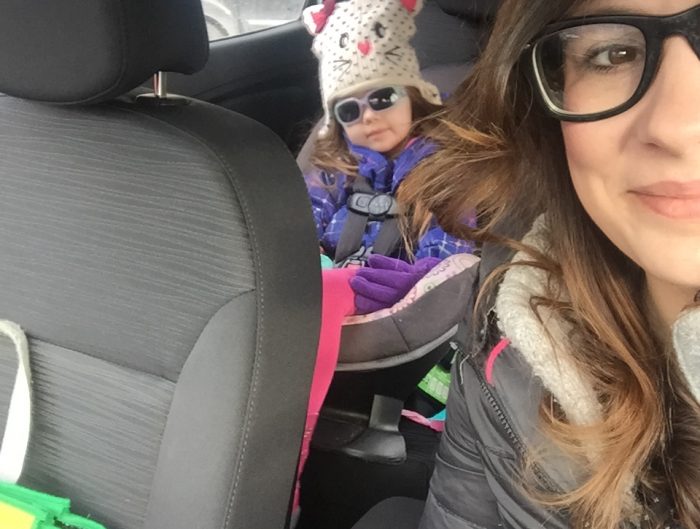
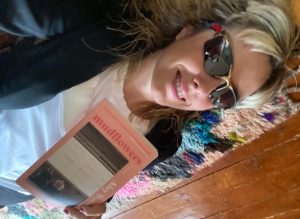

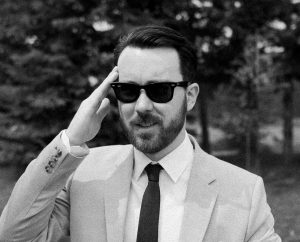
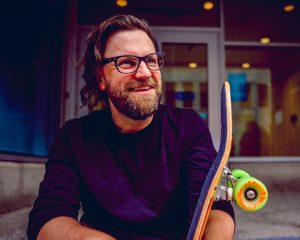
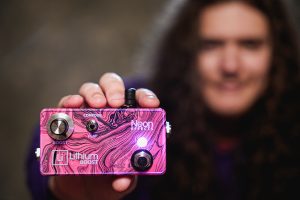

2 Comments
So inspiring Gina. Amazing how some people can find the positives in the most difficult situations.
Beautifully written Gina.